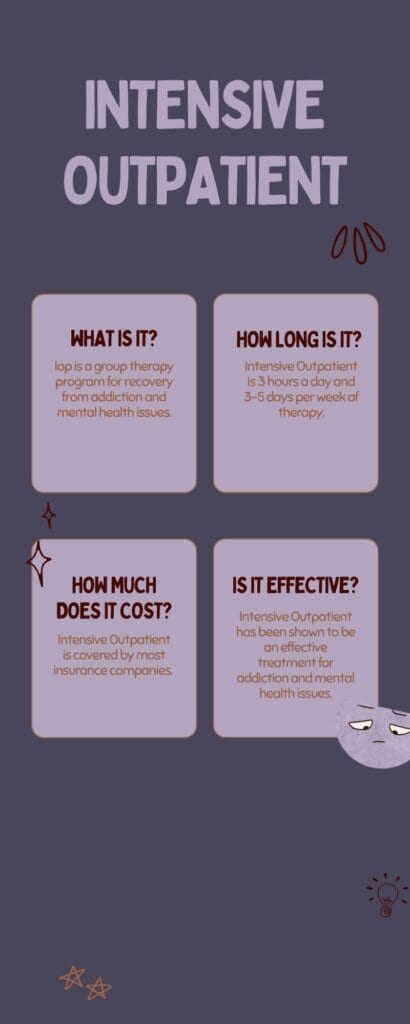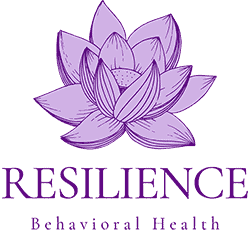Relapse Prevention Strategies: Learning in Massachusetts Intensive Outpatient Programs
Getting over addiction is just one part of the battle. It’s staying free of it that’s the bigger challenge. The figures are already alarming, with an estimated 07 million cases of relapse each year in the US alone.
With such a state of affairs, there’s no understating the importance of proper care and support beyond the treatment regimen. Relapse prevention is as great a concern for people recovering from addiction as the recovery itself.
In this article, we will explore the risks of relapse and endeavor to understand how it can be prevented and what concrete measures can be taken at mental health intensive outpatient Massachusetts to mitigate the risk of relapse.
Challenges and Strategies: In the Face of Relapse Prevention
Relapse prevention is one of the most crucial factors in a successful recovery of people struggling with substance use disorders. Mental health intensive outpatient Massachusetts plays a huge role in equipping individuals with the tools and strategies to navigate challenges and maintain long-term sobriety.
However, the journey to sustained recovery is rarely smooth, and relapse prevention faces several significant hurdles. Here are the top 3 challenges faced by individuals in the recovery phase:
Negative Effect and Cravings
60% of relapses are triggered by negative emotions or cravings. This highlights the crucial role of addressing negative affect and cravings in relapse prevention strategies.
Identifying and Managing Triggers
- Developing awareness of personal triggers: Individuals can learn to recognize the specific emotions, situations, or thoughts that typically lead to cravings.
- Implementing coping skills: Techniques such as mindfulness, relaxation exercises, cognitive behavioral therapy, and distraction can help manage cravings and reduce their intensity.
Building Distress Tolerance
- Accepting discomfort without resorting to substances: Individuals can learn to tolerate negative emotions without feeling the need to escape through substance use.
- Building emotional regulation skills: Practicing identifying, expressing, and managing emotions in healthy ways can reduce the reliance on substances as coping mechanisms.
Stress and Difficult Emotions
40% of individuals with SUDs experience high levels of stress. This chronic stress can act as a major trigger for relapse, urging individuals to seek relief through substances.
Understanding the Cycle of Stress and Relapse:
- The role of stress: Stress activates the body’s fight-or-flight response, releasing hormones like cortisol that can exacerbate existing emotional dysregulation.
- Anger and grief: Difficult emotions like anger, frustration, or grief can become overwhelming, leading to a sense of hopelessness and vulnerability to relapse.
- Life challenges: Life transitions and challenges such as job loss, relationship issues, or financial problems can further amplify stress and trigger the relapse cycle.
Building Resilience and Managing Stress:
- Implementing stress management techniques: Individuals can learn practical tools like time management, exercise, sleep hygiene, and relaxation techniques to proactively manage stress levels.
- Developing emotional regulation skills: Learning to identify and express emotions in healthy ways through communication skills, assertiveness training, and journaling can foster emotional control and prevent resorting to substances.
Social and Environmental Factors
50% of relapses occur in social settings or involve exposure to substance use cues. This underscores the importance of addressing social and environmental factors in relapse prevention.
Navigating High-Risk Environments:
- Identifying and avoiding high-risk situations: Individuals can learn to recognize places, people, or activities that could trigger cravings or compromise sobriety.
- Developing refusal skills and setting boundaries: Practicing assertive communication techniques to politely decline invitations to engage in high-risk activities and establish clear boundaries with others.
- Environmental Management: Modifying personal living spaces to remove triggers and create a safe and supportive environment that fosters recovery.
Building Supportive Social Networks:
- Connecting with recovery communities: Joining peer support groups and building relationships with individuals who understand and support recovery goals can provide a sense of belonging and valuable resources.
- Finding sober hobbies and activities: Engaging in activities that align with personal interests and values can create a fulfilling and supportive social network outside of substance use circles.
- Advocating for recovery needs: Communicating personal needs and recovery goals to friends, family, and employers can encourage understanding and create a supportive environment that facilitates continued sobriety.
Top 05 Relapse Prevention Strategies
Mental health intensive outpatient Massachusetts plays a crucial role in supporting individuals on their journey to sustained recovery from substance use disorders. These programs go beyond simply addressing physical dependence on substances; they equip individuals with the tools and strategies to navigate the challenges of early recovery and prevent relapse.
While various strategies contribute to relapse prevention in Massachusetts IOPs, five stand out as particularly effective and widely employed:
Cognitive Behavioral Therapy (CBT):
CBT helps individuals identify and challenge negative thought patterns and beliefs that can trigger cravings and lead to relapse. Through CBT, mental health intensive outpatient Massachusetts helps individuals learn to replace maladaptive coping mechanisms with healthy strategies for managing difficult emotions and high-risk situations.
Medication-Assisted Treatment (MAT):
For individuals struggling with specific substance use disorders like opioid dependence, MAT can be a valuable tool. Medications like methadone or buprenorphine can help reduce cravings, stabilize mood, and prevent relapse, providing a foundation for individuals to engage in other aspects of recovery.
Life Skills Training:
IOPs provide training in essential life skills, such as time management, communication, assertiveness, budgeting, and relapse prevention planning. These skills empower individuals to navigate everyday challenges, manage their finances, and make healthy choices that support their recovery journey.
Mindfulness and Relaxation Techniques:
Practices like meditation, yoga, and deep breathing exercises can equip individuals with healthy coping mechanisms for managing stress, regulating emotions, and reducing cravings. Integrating mindfulness and relaxation techniques into daily routines can enhance overall well-being and support emotional resilience in the face of challenges.
Holistic Therapies:
Some IOPs offer complementary therapies like acupuncture, massage therapy, or art therapy. These holistic approaches can address the physical and emotional dimensions of recovery, promoting overall well-being and complementing other treatment modalities.

Empowering Your Recovery Journey: Building Relapse Resilience with Resilience Behavioral Health IOPs
At Resilience Behavioral Health, we believe recovery is a dynamic journey, not a final destination. That’s why our Massachusetts IOPs prioritize relapse prevention, equipping you with the tools to navigate challenges and minimize setbacks.
Personalized Relapse Plans
You can count on our therapists to help you craft a plan that addresses your unique triggers, vulnerabilities, and strengths; helps you develop effective coping mechanisms and healthy lifestyle habits; and identifies early warning signs.
Mindfulness For Self-Mastery
At our mental health intensive outpatient in Massachusetts, you will learn powerful techniques like meditation and breathwork to manage cravings, reduce stress, and enhance self-awareness while you gain invaluable insight into your thoughts and emotions.
Practice In Safe Scenarios
Our programs let you engage in role-playing and therapeutic simulations to rehearse responses to high-risk situations. This helps build confidence in your coping skills and solidify your commitment to recovery.
Ongoing Support
Our doors are always open. You can benefit from continued therapy, peer groups, and alumni networks to aid you with long-term guidance and encouragement on your journey.
Recover With Confidence: Connect with Resilience Behavioral Health Today
The path to sustained well-being after addiction doesn’t have to be daunting. It all starts with getting the help needed to build your relapse resilience and safeguard your recovery:
Reach out to our dedicated team at (888)-401-1179. The staff at our mental health intensive outpatient in Massachusetts will answer your questions and guide you towards the IOP program that aligns with your unique needs and strengthens your path towards lasting well-being.
Remember, you deserve to navigate your recovery with confidence and with the minimal, closest-to-zero, risk of relapse.


